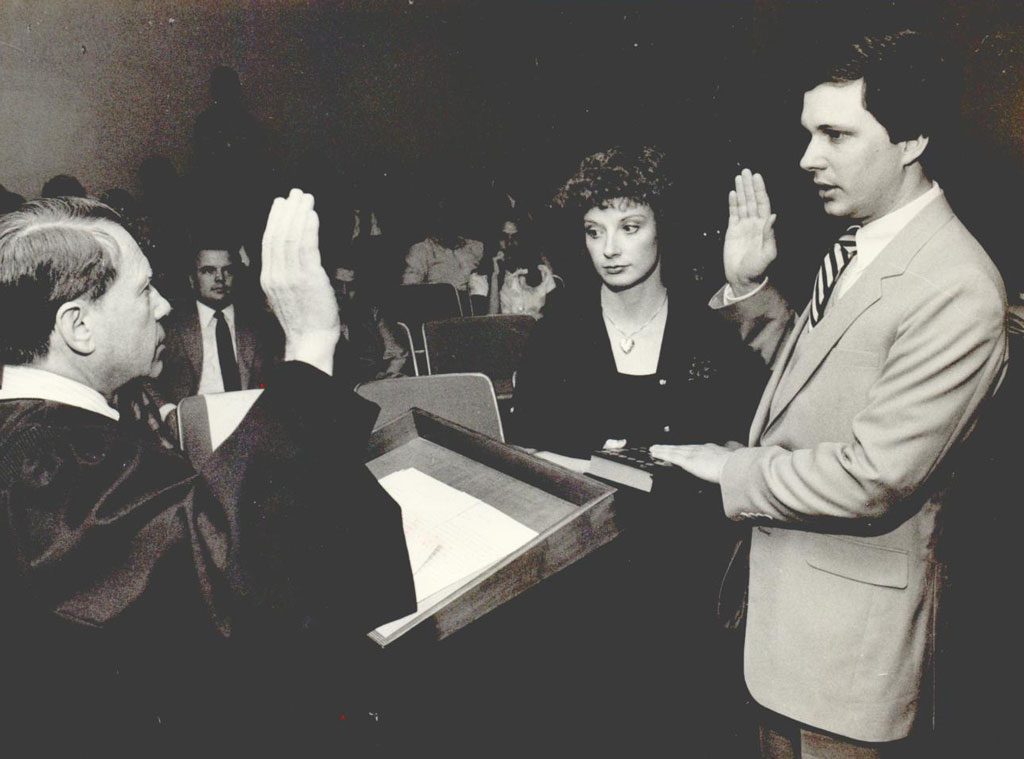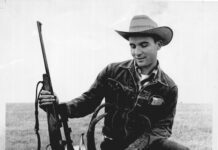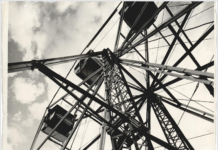On Sept. 1, 1939, Marian Piotr Opala was an 18-year-old student living with his parents in Lodz, Poland, when he heard that Germans had invaded his homeland and were headed toward the city from the west.
A law student, Opala soon discovered a resourcefulness and a will to live that would take him through years of Nazi occupation, relocations, resistance fighting, a concentration camp and immigration. Eventually, he wound up in Oklahoma, where he joined the state Supreme Court in 1978.

Opala told his story for a Voices of Oklahoma interview by the Oklahoma Center for the Humanities just four days before his death in 2010. Opala was also the subject of a documentary by Polish filmmaker Andrew Sikora.
“Among many dignitaries and historical figures I have had privilege to interview, Justice Opala stands out as a uniquely rational and highly ethical individual,” Sikora says. “Those two characteristics often can spark quite opposite reactions in times of dehumanizing events like World War II and the Holocaust. The rational assessment of hopelessness during the German occupation prevented many to stand up to the occupier, but others made the ‘irrational’ decision to fight back and risk everything they had, like Marian Opala did during the war.”
Germany had lost western Poland after World War I, but annexed that region in 1939 to set off a new war. Opala and his family awaited England to liberate them, but that never occurred. Antony Opala, Marian’s father, initially thought the Germans would not be as brutal as they turned out to be.
By 1940, however, the elder Opala realized that Germany wanted to eradicate all Polish culture from that western area, so he reluctantly allowed his family to leave Lodz in January 1941. The Opala family surreptitiously walked to Warsaw in eastern Poland, where they lived for a time with Marian Opala’s uncle in an apartment. The teenager witnessed violence, oppression and arbitrary arrests because, as he told Sikora later, “the Germans planned the war and the occupation to perfection.”
In Warsaw, the Polish Home Army – also known as the Polish Underground, a highly organized, resistance organization operating by subterfuge – conscripted Opala, 19 at this time. Working with the British, the Polish Home Army developed a network in which most members knew little of general operations. Opala received orders from people in disguise, and he never knew who his compatriots were. He lived at home, pretended to be a normal citizen and never told anyone, not even his parents, about his resistance activities. If he had been discovered, they and he would have faced death.
The underground organization used Opala mostly as a translator, because he was one of few in the group fluent in English. He was given messages to translate from Polish to English and they were relayed to British forces. On other occasions, he fought directly against the occupiers; he twice participated in the assassination of German officials. The whole time, he recalled almost 70 years later, he was “scared to death each inch of the way.” Opala did not believe the Germans could be beaten, yet he fought against them anyway.
The Polish underground then sent Opala to join British troops in Istanbul. He stayed with them for several years and fought in Italy, Ethiopia and Egypt. In 1944, soon after D-Day, Opala parachuted into Nazi-occupied Poland. He was captured and sent to the Flossenburg concentration camp near the Czech border. He recalled it as “a plain murder camp.” He and 1,500 others were liberated April 23, 1945, by the U.S. Army.
Opala, seriously ill, was taken to a British camp in Germany, where he recovered. Gene Warr, an Army captain from Oklahoma, agreed to sponsor him in obtaining a visa to America, and, in 1947, he ended up in Oklahoma City, where he resumed his law studies. Opala was admitted to the Oklahoma bar and served as a lawyer and judge before his Supreme Court appointment.
During the war and afterward in America, living through utter fear and tragedy, Opala developed a moral compass of right and wrong, based on pain and suffering after experiencing the oppression of one against another. His resistance of Nazi repression preceded his fights against governmental oppression in any form, as signified by repeated rulings and declarations upholding citizens’ First Amendment rights.
“Justice Opala was without a doubt the most worldly supreme court justice Oklahoma has ever had, but in my eyes the combination of his rational with ethical character made the biggest impression on me,” Sikora says.
To hear Opala, in his own words, visit voicesofoklahoma.com.
























